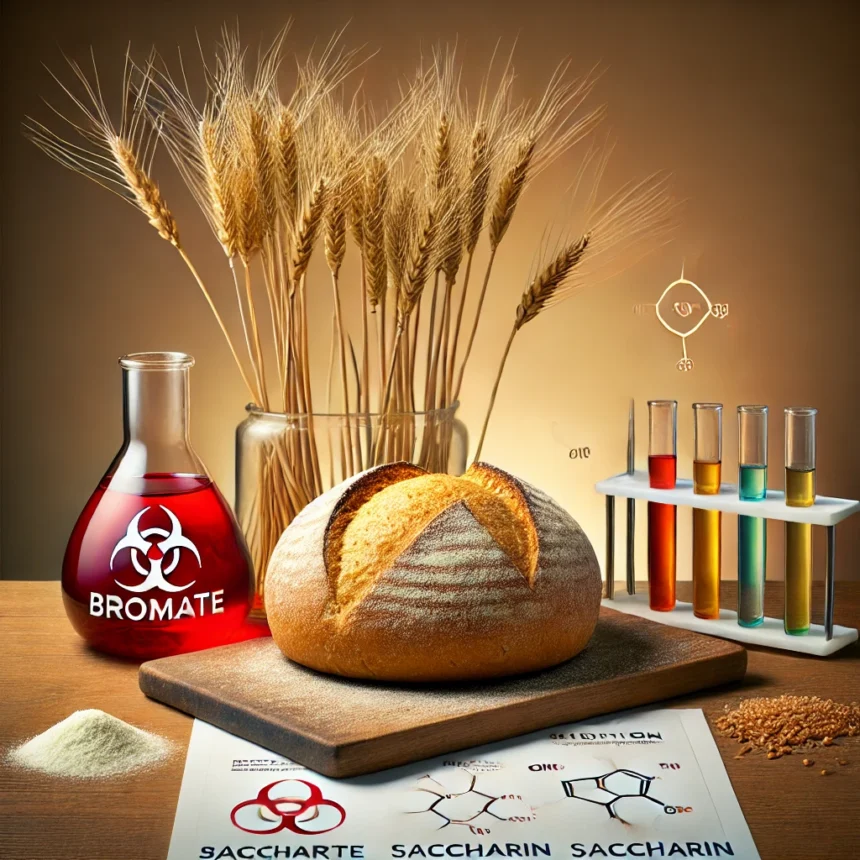Bread, a fundamental part of the Nigerian diet, faces scrutiny as the National Agency for Food and Drug Administration and Control (NAFDAC) raises concerns about the presence of harmful chemicals like saccharin and potassium bromate in locally produced bread. The agency’s warning brings much-needed attention to a hidden health crisis, urging consumers, bakers, and regulators to act swiftly.
What Is Saccharin and Bromate?
- Saccharin: Saccharin, a synthetic sweetener, is commonly used to enhance the flavor of baked goods. Although it is permitted for usage in some countries under rigorous rules, laboratory studies have connected excessive use to health hazards such as bladder cancer.
- Potassium Bromate: works as a flour improver, making dough more elastic and bread fluffier. However, potassium bromate is a known carcinogen that is prohibited in several places, including the European Union and Canada. It has been related to kidney and thyroid cancer when ingested over time.
MUST READ; Child Mortality – A Silent Health Crisis sweeping across Africa
The Scope of the Problem in Nigeria
- Consumer Risks: Nigeria’s heavy reliance on bread as an economical staple raises vulnerability. Uninformed consumers mistakenly buy bread contaminated with dangerous chemicals.
- Regulatory Challenges: Despite the chemical’s illegality in Nigeria, enforcement gaps allow for its ongoing usage, particularly in smaller-scale bakeries.
- Economic Considerations: Potassium bromate is less expensive and more effective for dough strengthening, making it an appealing option for cost-conscious makers.
Health Consequences of Consuming Contaminated Bread
- Carcinogenic Risks: Regular consumption of bromate-laced bread considerably raises the risk of acquiring cancer.
- Kidney and Thyroid Damage; Potassium bromate causes cellular damage in the kidney and thyroid over time, resulting in irreversible diseases.
- Hormonal Disruption: Saccharin’s involvement with the endocrine system may cause hormonal abnormalities that impact metabolic and reproductive health.
- Allergic Reactions: When exposed to saccharin or bromate, sensitive people may develop rashes, respiratory distress, or other allergic reactions.
What Customers Can Do
As a customer, you play an important role in demanding safer food practices. Educate yourself by researching dangerous substances and checking bread container labels or certifications. Patronize brands that adhere to NAFDAC norms. Join consumer groups to advocate for stricter enforcement of food safety regulations. Demand that local bakers be transparent about their production procedures. Raising awareness within your community can help lower the risks of dangerous substances.
In conclusion, consuming bread with saccharin and potassium bromate has serious health consequences, but raising awareness and taking action can help to reverse that. Regulators, bakers, and consumers must all work together to eliminate these hazardous practices from the food sector. We can ensure that bread, a critical food staple, stays healthy and safe for everyone by selecting safer alternatives and holding producers accountable.


